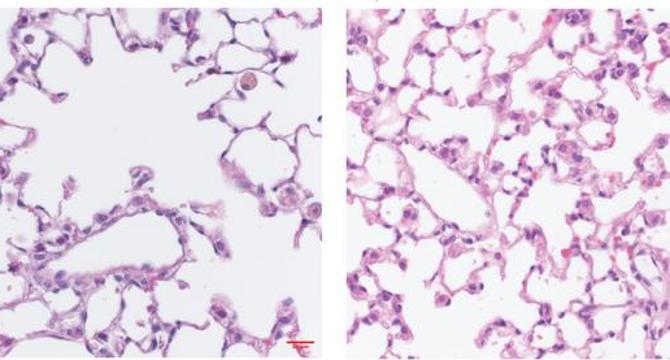Bioengineer
7d
174

Image Credit: Bioengineer
New Findings Reveal Mechanism by Which Cigarette Smoke Harms Essential Lung Immune Cells
- Recent research has offered new insights into the underlying mechanisms by which cigarette smoke contributes to various respiratory diseases, including chronic obstructive pulmonary disease (COPD).
- A pivotal study published in the prestigious Journal of Experimental Medicine on January 17, 2025, has shed light on the interactions between cigarette smoke components and a specific group of immune cells in the lungs known as mucosal-associated invariant T (MAIT) cells.
- The study highlights how exposure to components of cigarette smoke impairs MAIT cell functionality, consequently increasing susceptibility to viral infections and exacerbating pre-existing conditions like COPD.
- MAIT cells play critical roles in the detection and response to microbial threats. By focusing on MAIT cells, the researchers aimed to identify specific pathways that could assist in developing therapeutic avenues aimed at bolstering respiratory health.
- Utilizing advanced computer modeling techniques, the researchers identified several cigarette smoke constituents that interact with the MR1 protein.
- The diminished ability of MAIT cells to effectively respond to infections raises significant concerns regarding the health outcomes of smokers and those subjected to second- and third-hand smoke.
- The team’s findings could inform the design of future therapies to enhance MAIT cell function or mitigate the effects of tobacco exposure.
- This is a crucial step forward in the fight against smoking-related diseases, fostering hope for innovative treatment options that could dramatically improve outcomes for millions of affected individuals worldwide.
- Given the staggering global burden of COPD, which is the third leading cause of mortality worldwide, understanding these cellular interactions offers ripe potential for targeting existing and novel treatments.
- The implications of such advancements hold tremendous potential in public health, particularly for populations significantly burdened by smoking-related diseases.
Read Full Article
10 Likes
For uninterrupted reading, download the app